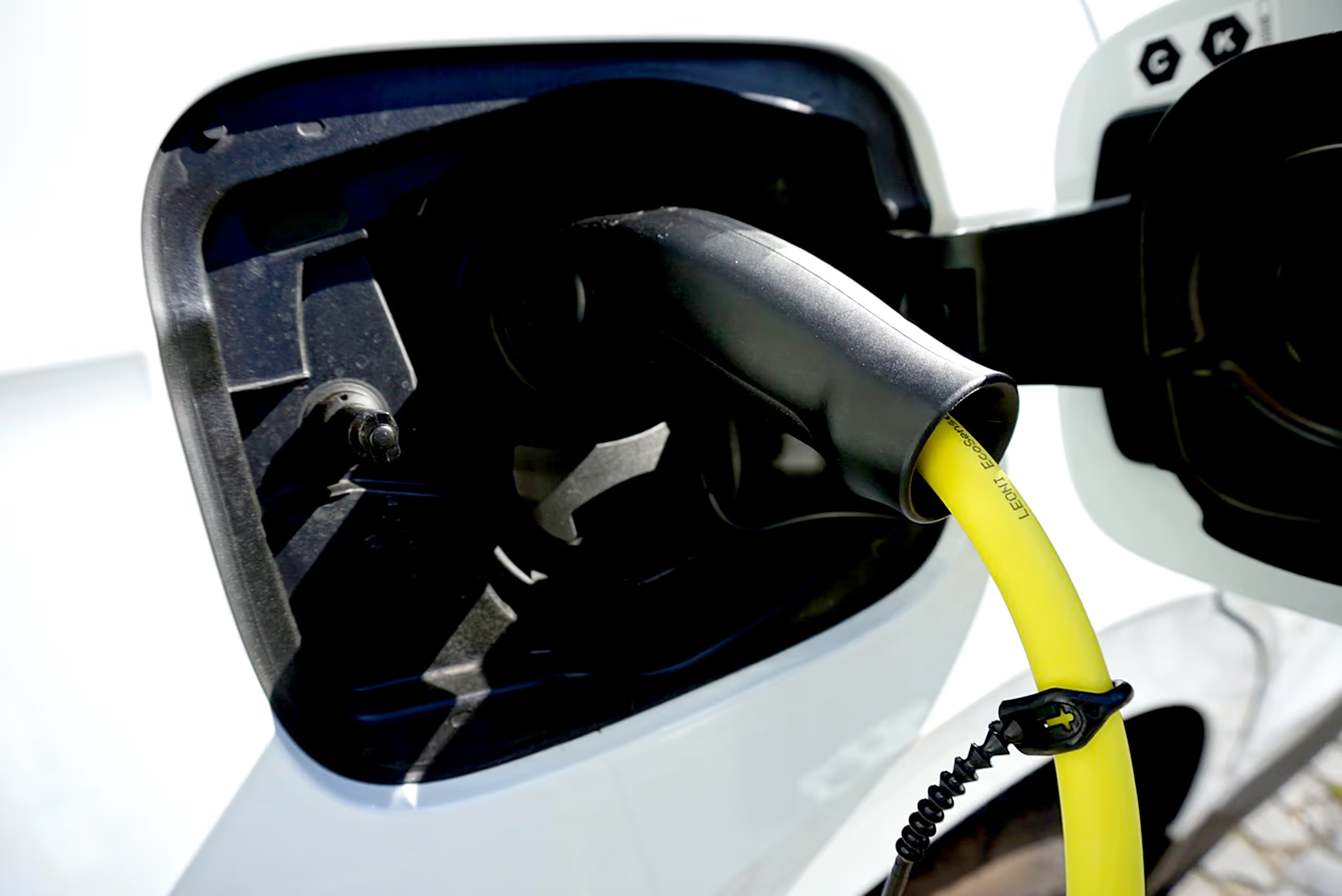Electric Vehicle (EV) Fleet Management: How to Prepare for the Future

The global shift toward sustainability has been rocking the transportation industry for years, and fleet managers know what's coming. The writing is on the wall as consumer adoption of electric vehicles (EV) gains momentum, and various states implement legislation[1] designed to phase-out diesel-powered trucks. EV is on the horizon for U.S. fleets.Some fleet managers have already made moves[2] to bring EV fleet solutions on board, and they've been met with issues. With electric truck technology in its nascence, EV fleet management is complex and an ever-changing challenge. But in the long run, embracing electric vehicles is the smartest decision for today's fleets.In this blog, we look at those layers of complexity facing fleet managers and reveal how you can best prepare for a transition to EV. The right EV fleet management software can make all the difference for today's fleet managers. Read on to learn how to tackle the EV question in your fleet and what steps to take to keep a competitive foothold.
Challenges of Electric Vehicle Fleet Management
Before fleets can realize big savings in costs, time, and energy, they have a few hurdles to jump.
Lack of Charging Infrastructure Means Range Limitations
Commercial transportation currently lacks the necessary charging infrastructure to operate an EV fleet like a diesel fleet in terms of how far vehicles can travel in a certain amount of time. Fleets that do adopt EVs have to carefully plan routes to account for charging time and locations. EV truck models that are currently available travel between about 200-300 miles per charge. Revising routes and delivery times throw a wrench in well-oiled operations, but some states are making plans to establish charging stations1 and routes specifically for trucks. As more states make it easier for EV trucks to travel long distances, the more practical it will be for fleets to embrace this technology.

Lack of Training Programs
Even the most experienced drivers require training before operating electric vehicles. Transitioning to more EVs means a larger investment in time and money for training and onboarding. Not every fleet has the resources sitting around right now to devote to this type of initiative. Hiring the right experts and implementing effective training programs will remain a requirement as EV technology makes its way into fleets. You'll also have to account for the adjustment period as new routines like charging during journeys will impact driver performance.
Difficulty in Managing Electricity Consumption
Managing vehicle charging is a new skill fleet managers must master if they hope to realize the cost-savings benefits of using EVs over diesel vehicles. Planning charging during off-peak hours or staggering charging[3] to balance out demand are just two factors fleet managers have to consider.
Evolving Incentives to Switch to an Electric Fleet
It's incumbent upon the fleet manager to stay on top of incentives, rebates, and other programs that incentivize fleets to go electric. You can start by exploring the tax credits associated with The Inflation Reduction Act of 2022[4] or other local programs such as this rebate in the Seattle, WA area[5]. As EV trucking technology evolves, it will be part of the fleet manager's ongoing responsibility to research these incentives. You'll also want to keep tabs on insurance providers that might incorporate incentives like discounted premiums for a demonstrated EV investment.
Benefits of Electric Vehicle Fleet Management
Despite the challenges and limitations of EVs, there are several benefits of switching to an electric fleet:
Reduced Fuel and Operating Costs
Diesel fuel is one of the biggest costs for fleets. You'll reap the savings on fuel after transitioning to electric vehicles if you can smartly manage charging costs and usage. The right fleet management software helps you control the fuel you use and see how much you spend per mile[6]."Overall, EVs offer high fuel economy, which translates to lower operating costs," according to the U.S. Department of Energy (DoE)[7]. And electricity prices tend to be less volatile than those of gasoline, making your fuel costs more predictable.

Greater Energy Efficiency
According to the DoE[8], "EVs convert over 77% of the electrical energy from the grid to power at the wheels. Conventional gasoline vehicles only convert about 12%, 30% of the energy stored in gasoline to power at the wheels."Additionally, electric vehicles have an advantage with instant torque compared to combustion engines - enabling larger trucks to speed up faster, which makes merging easier. The ability to accelerate faster means drivers use less force to initiate speeds - resulting in increased efficiency of power, especially for very heavy loads[7].
Lower Engine Maintenance Costs
Such increased efficiency of power also results in less maintenance for vehicles as they suffer less wear and tear in regards to acceleration[8]. Compared to diesel vehicles, electric fleet vehicles don't require as many parts and regular check ups for engine maintenance, either. You'll end up cutting back on maintenance spend[9] with an EV fleet.

An Unforeseen Competitive Advantage
With EVs' quieter driveability and lower emissions, they may enjoy fewer regulations than diesel-powered trucks, according to reports[10]. With less red tape, an EV fleet might be able to run nighttime deliveries, for example, giving these organizations a competitive leg up.
How to Prepare Your Fleet for an Electric Vehicle Transition
Once you've considered the pros and cons of EVs, here's what you do to prepare for the transition.
Research and Choose Charging and Truck Technologies
Calculate how much your company can save in terms of fuel, compare that with utility cost increases, and then account for the energy requirements of charging infrastructure. Research what charging solutions will help you save the most and maximize your EV investment.Additionally, explore the electric truck models available on the market and draft plans for how you might incorporate them into your fleet.
Plan for the Future Maintenance Needs of Your Fleet
Onboarding EVs will mean your fleet has different parts to maintain. While you'll be dealing with fewer components that experience less wear and tear from operation, it's still crucial to plan for maintenance requirements and to educate vehicle operators about maintenance schedules and charging.
Map out an Electric Truck Charging Trail
Research how your fleet would need to change delivery routes, and explore those routes that would maximize your electric truck usage. Mapping out a trail of charging stations produces an EV trail that helps you predict time and energy costs. Base the routes on the distance a fully charged truck covers and minimize the stops where you can.
Research Carbon Neutrality Certification Benefits
As your fleet embraces EVs, you'll be an important part of the global effort to attain carbon neutrality. Research the benefits carbon neutral certification gives for your fleet, especially in terms of strengthened brand reputation and positioning your business as an industry leader. Your EV investment will be a strong step toward obtaining such a certification that sets your fleet apart from many in the eyes of the industry, consumers, and regulatory bodies.

Begin Your EV Fleet Management Journey Today
Now is the time to start preparing for the shift to EVs as consumers continue to drive progress in this space and state and federal legislation push the industry in the EV direction. Mitigating the challenges of EV fleet management by doing the research and choosing the right EV fleet management software will set your organization on the path toward successful sustainability. If you're ready to learn more about how software can help you make this EV transition, book a demo today with Netradyne.
Sources:
- https://oregoncapitalchronicle.com/2023/07/17/oregon-joins-west-coast-states-seeking-millions-to-create-zero-emission-truck-fueling-network/
- https://www.nytimes.com/2023/12/28/business/energy-environment/electric-trucks-port-california.html
- https://rmi.org/cost-effectively-transitioning-fleets-to-evs-without-disrupting-operations/
- https://www.ttnews.com/articles/-incentives-electric-truck
- https://harrell.seattle.gov/2023/08/16/city-of-seattle-announces-new-pilot-program-to-incentivize-heavy-duty-truck-electrification/
- https://www.netradyne.com/blog/fleet-management-fuel-cost
- https://afdc.energy.gov/vehicles/electric_fleets.html
- https://www.fueleconomy.gov/feg/evtech.shtml
- https://www.netradyne.com/blog/best-fleet-vehicle-maintenance-tracking-software-and-solutions
